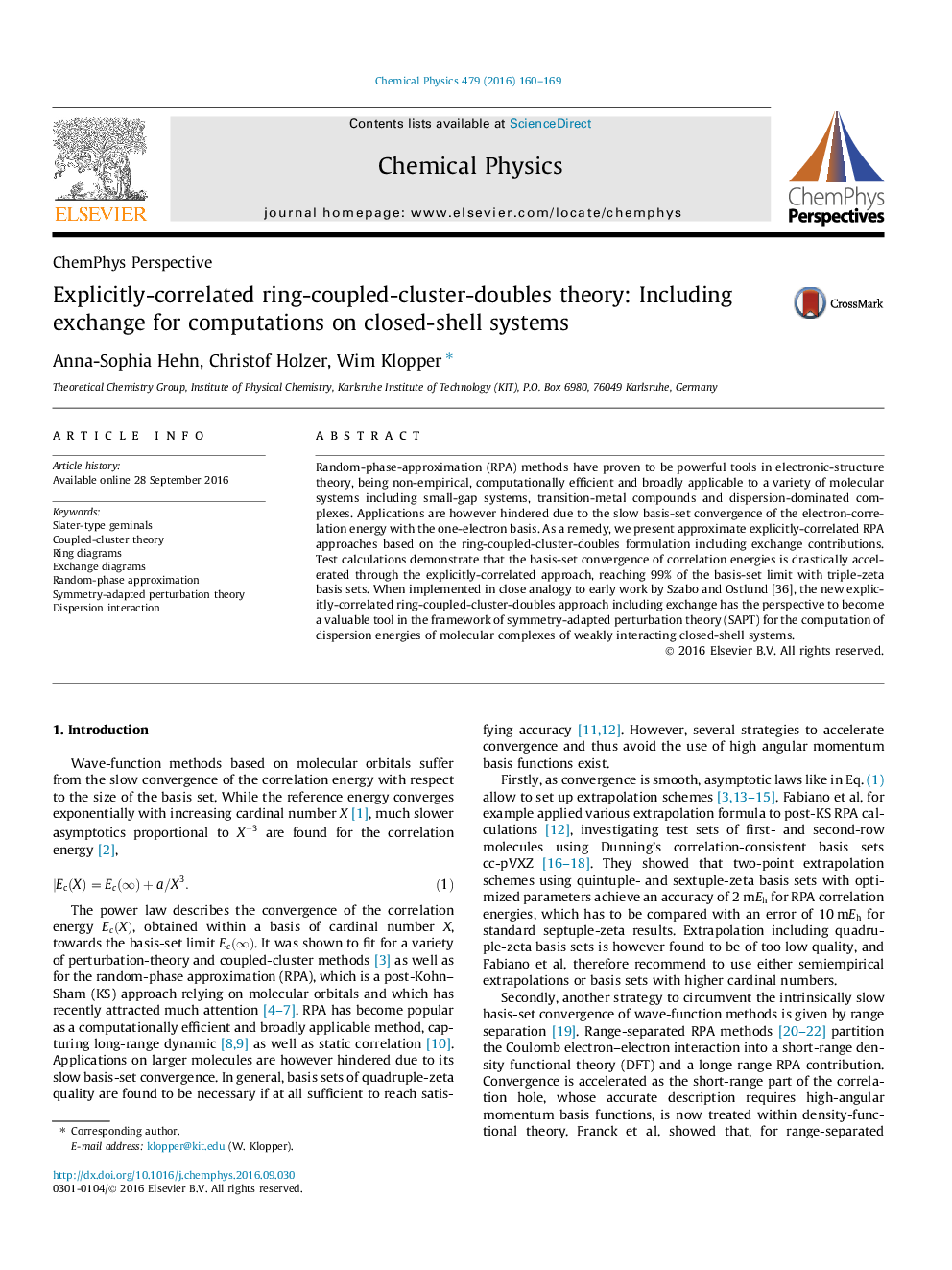| Article ID | Journal | Published Year | Pages | File Type |
|---|---|---|---|---|
| 5372909 | Chemical Physics | 2016 | 10 Pages |
â¢Ring-coupled-cluster-doubles approach now implemented with exchange terms.â¢Ring-coupled-cluster-doubles approach now implemented with F12 functions.â¢Szabo-Ostlund scheme (SO2) implemented for use in SAPT.â¢Fast convergence to the limit of a complete basis.â¢Implementation in the TURBOMOLE program system.
Random-phase-approximation (RPA) methods have proven to be powerful tools in electronic-structure theory, being non-empirical, computationally efficient and broadly applicable to a variety of molecular systems including small-gap systems, transition-metal compounds and dispersion-dominated complexes. Applications are however hindered due to the slow basis-set convergence of the electron-correlation energy with the one-electron basis. As a remedy, we present approximate explicitly-correlated RPA approaches based on the ring-coupled-cluster-doubles formulation including exchange contributions. Test calculations demonstrate that the basis-set convergence of correlation energies is drastically accelerated through the explicitly-correlated approach, reaching 99% of the basis-set limit with triple-zeta basis sets. When implemented in close analogy to early work by Szabo and Ostlund [36], the new explicitly-correlated ring-coupled-cluster-doubles approach including exchange has the perspective to become a valuable tool in the framework of symmetry-adapted perturbation theory (SAPT) for the computation of dispersion energies of molecular complexes of weakly interacting closed-shell systems.
